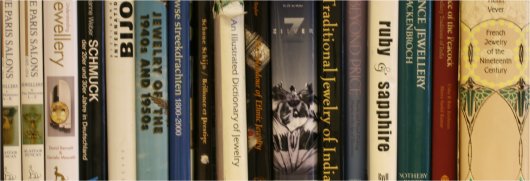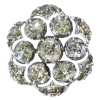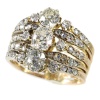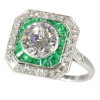Nous offrons des facilités de paiement pour le bijou de vos rêves. Demandez nous les détails. Expédition assuré gratuite !

Antique jewelry glossary
Welcome to our extensive antique jewelry glossary with around 1,500 jewelry related entries.If you feel you are missing an explanation, feel free to let us know and we will add it.
A - B - C - D - E - F - G - H - I - J - K - L - M - N - O - P - Q - R - S - T - U - V - W - X - Y - Z all
Bauhaus
Bauhaus (German for: "House of Building" or "Building School") is the common term for the Staatliches Bauhaus, a school in Germany that combined crafts and the fine arts, and was famous for the approach to design that it publicized and taught. It operated from 1919 to 1933. The Bauhaus school was founded by Walter Gropius in Weimar. In spite of its name, and the fact that its founder was an architect, the Bauhaus did not have an architecture department for the first several years of its existence.
Bauhaus style became one of the most influential currents in Modernist architecture and modern design. The Bauhaus had a profound influence upon subsequent developments in art, architecture, graphic design, interior design, industrial design and typography. The school existed in three German cities (Weimar from 1919 to 1925, Dessau from 1925 to 1932 and Berlin from 1932 to 1933), under three different architect-directors: Walter Gropius from 1919 to 1927, Hannes Meyer from 1927 to 1930 and Ludwig Mies van der Rohe from 1930 to 1933, when the school was closed by the Nazi regime.
The changes of venue and leadership resulted in a constant shifting of focus, technique, instructors, and politics. When the school moved from Weimar to Dessau, for instance, although it had been an important revenue source, the pottery shop was discontinued. When Mies took over the school in 1930, he transformed it into a private school, and would not allow any supporters of Hannes Meyer to attend it.
From: Wikipedia









